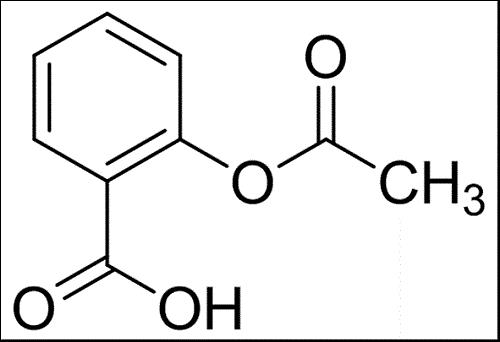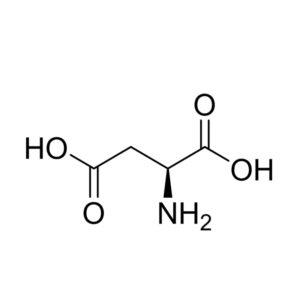Acetylsalicylic acid: a legendary star in the history of medicine
Jun 26,2024
Introduction
In the vast starry sky of medicine, there is a dazzling star, which has become a legendary superstar in the history of medicine with its unique pharmacological action and extensive application value. The star is acetylsalicylic acid, a centuries-old drug that still plays an important role in medicine today. This article will lead us to explore its mystery deeply and reveal its magical pharmacological action and wide application value.

Origin and development
Acetylsalicylic acid, also known as aspirin, dates back to the 19th century. Initially, people found that willow bark has the effect of antipyretic pain, after in-depth research, scientists extracted salicylic acid from the active ingredient. However, salicylic acid is a strong irritant, that easily causes gastrointestinal discomfort after oral administration. In order to improve its taste and reduce side effects, scientists through the method of chemical synthesis, salicylic acid, and acetic anhydride reaction, to obtain acetylsalicylic acid. This new drug not only retained the antipyretic and analgesic effects of salicylic acid but also greatly reduced its side effects, becoming a major breakthrough in the medical field at that time.1

Pharmacological effects
Antipyretic and analgesic effects
Acetylsalicylic acid plays an antipyretic and analgesic role by inhibiting prostaglandin synthesis in vivo. Prostaglandins are bioactive substances that are closely related to pain, fever, and inflammation. It blocks the prostaglandin synthesis pathway, thereby reducing pain and lowering body temperature. In addition, it also has anti-inflammatory effects, which can inhibit the production of inflammatory mediators and alleviate inflammatory response.2
Antiplatelet aggregation
In addition to antipyretic and analgesic effects, acetylsalicylic acid also has anti-platelet aggregation effects. Platelets are important cells that maintain the integrity of blood vessel walls and prevent bleeding. However, in some pathological states, platelets will be over-activated and aggregate together to form a thrombus, leading to cardiovascular and cerebrovascular diseases. Acetylsalicylic acid can inhibit the production of thrombin by platelets and prevent thrombosis, thereby reducing the risk of cardiovascular and cerebrovascular diseases.3
Clinical application
Antipyretic and analgesic
As a common antipyretic and analgesic drug, acetylsalicylic acid is widely used in the treatment of colds, influenza, headaches, joint pain, and other diseases. Its analgesic effect is extensive and long-lasting, and it has a good relief effect for mild to moderate pain.
Cardiovascular disease prevention
Acetylsalicylic acid is widely used in the prevention of cardiovascular diseases because of its anti-platelet aggregation effect. For example, long-term use can reduce the risk of myocardial infarction, stroke, and other cardiovascular and cerebrovascular diseases. In addition, it can also be used for the adjuvant treatment of patients with coronary heart disease to improve myocardial ischemia and angina symptoms.4
Anti-inflammatory therapy
Acetylsalicylic acid has a certain anti-inflammatory effect and can be used to treat inflammatory diseases such as rheumatoid arthritis and rheumatoid arthritis. Its anti-inflammatory effect is mainly achieved by inhibiting the production and release of inflammatory mediators. By suppressing the inflammatory response, joint swelling, and pain can be reduced and the patient's quality of life improved.5
Precautions and safety
Although acetylsalicylic acid has a wide range of application values and good safety, the following points still need to be noted during use:
Allergic reactions
Some patients may have allergic reactions to acetylsalicylic acid, such as rash, hives, etc. Before use, patients should be carefully asked about their allergy history to avoid allergic reactions.
Gastrointestinal reactions
Long-term heavy use of acetylsalicylic acid may lead to gastrointestinal bleeding, gastric ulcers, and other adverse reactions. Therefore, in the process of use should pay attention to observing the gastrointestinal symptoms of patients, if there is no adaptation to medical treatment.
Caution for pregnant and lactating women
acetylsalicylic acid may have adverse effects on the fetus and infant, so pregnant and lactating women should use it with caution or avoid use.
Use with caution in patients with liver and kidney dysfunction
acetylsalicylic acid is mainly metabolized by the liver and excreted by the kidney and should be used with caution or avoided in patients with liver and kidney dysfunction.
Future Outlook
With the continuous progress of science and technology and the deepening of medical research, the application field of acetylsalicylic acid will continue to expand. In the future, acetylsalicylic acid may play a greater role in tumor treatment, neurodegenerative diseases, and other fields. In addition, with the development and application of novel acetylsalicylic acid derivatives, its efficacy will be further improved, side effects will be further reduced, and better treatment results and quality of life for patients.
Conclusion
Acetylsalicylic acid, as an ancient drug with hundreds of years of history, plays an important role in the field of medicine. Through an in-depth understanding of its pharmacological effects and clinical applications, we can better utilize it for disease treatment and health management. At the same time, we should also pay attention to its side effects and safety issues to ensure its safety and effectiveness in clinical applications.
References
[1].Schr?r, K., Acetylsalicylic acid. John Wiley & Sons: 2016.
[2].Kacso, G.; Terézhalmy, G. T., Acetylsalicylic acid and acetaminophen. Dental Clinics of North America 1994, 38 (4), 633-644.
[3].Rowland, M.; Riegelman, S.; Harris, P. A.; Sholkoff, S.; Eyring, E., Kinetics of acetylsalicylic acid disposition in man. Nature 1967, 215 (5099), 413-414.
[4].Limmroth, V.; Katsarava, Z.; Diener, H. C., Acetylsalicylic acid in the treatment of headache. Cephalalgia 1999, 19 (6), 545-551.
[5].Stuart, M. J.; Gross, S. J.; Elrad, H.; Graeber, J. E., Effects of acetylsalicylic acid ingestion on maternal and neonatal hemostasis. New England Journal of Medicine 1982, 307 (15), 909-912.
- Related articles
- Related Qustion
- Synthesis of Aspirin Jul 25, 2024
Aspirin is an effective analgesic (pain reliever), antipyretic (fever reducer) and anti-inflammatory agent and is one of the most widely used non-prescription drugs.
- Uses and Toxicity of Aspirin May 7, 2022
Aspirin, also known as acetylsalicylic acid (ASA), is a medication used to reduce pain , fever, or inflammation.
- Side effects of Aspirin Oct 20, 2021
The use of aspirin to treat fever dates back to antiquity with the use of willow bark and leaves. Ever since the active component of willow bark was isolated and marketed in 1899, it has remained one of the most popular medications for the
Acetylsalicylic acid
50-78-2You may like
Acetylsalicylic acid manufacturers
- Acetylsalicylic acid
-

- 2025-07-06
- CAS:50-78-2
- Min. Order:
- Purity: 0.99
- Supply Ability:
- Acetylsalicylic acid/Aspirin
-

- $0.00 / 25Kg/Drum
- 2025-07-04
- CAS:50-78-2
- Min. Order: 25KG
- Purity: 99.5%-101%
- Supply Ability: 500KG
- Acetylsalicylic acid;Aspirin
-

- $0.00 / 1Kg/Bag
- 2025-07-04
- CAS:50-78-2
- Min. Order: 1Kg/Bag
- Purity: 0.99
- Supply Ability: 20 tons






